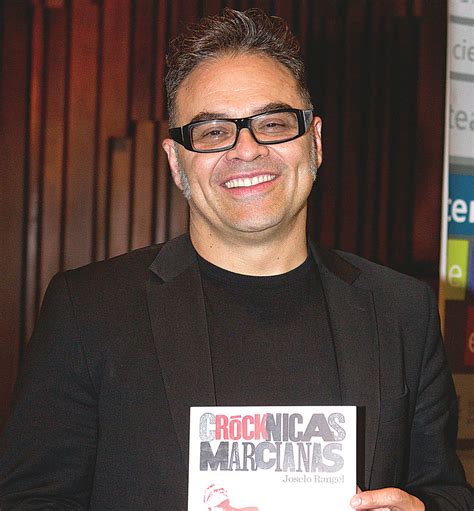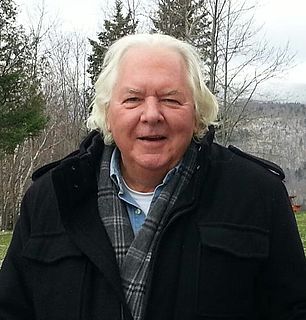A Quote by Trevor Paglen
When we look at something that is alien to us, that is beyond our comprehension, what do we see but ourselves?
Related Quotes
I believe that in our own individual ways, God takes us to the grove or the mountain or the temple and there shows us the wonder of what His plan is for us. We may not see it as fully as Moses or Nephi or the brother of Jared did, but we see as much as need to see in order to know the Lord's will for us and to know that He loves us beyond mortal comprehension.
I'm not sure how each one of us sees ourselves in the band, but we're being part of this ritual of identity where people see Café Tacvba as something Mexican, as a representation of the Mexican. The songs, the music, the energy given in a concert. Sometimes I question that there's not much decision from our part, like there's something that leads us to this. Something beyond.
As long as we insist on relating to it strictly on our own terms-as strange to us or subject to us-the wilderness is alien, threatening, fearful. We have no choice then but to become its exploiters, and to lose, by consequence, our place in it. It is only when, by humility, openness, generosity, courage, we make ourselves able to relate to it on its terms that it ceases to be alien.
Discipleship is not limited to what you can comprehend – it must transcend all comprehension. Plunge into the deep waters beyond your own comprehension, and I will help you to comprehend even as I do. Bewilderment is the true comprehension. Not to know where you are going is the true knowledge. My comprehension transcends yours.
Human beings are complicated and flawed and unique, but we all have a story to tell. Gone are the days where our lead characters can only look like somebody else. Heroes look like all of us. We see ourselves in each others' stories. We see who we are. We see who we want to be. Sometimes we see who we don't want to be. And through that we have a greater understanding of ourselves and acceptance of each other.
Most of what happens in the world is far beyond a dog's comprehension, so they must turn to their faith in us to help them navigate life's treacheries. Don't we, also, have unanswerable questions about the vagaries of modern existence for which the answer is beyond human grasp, so that only our faith can guide us?
What we see in the outer is but a reflection of the inner, because we surround ourselves with a picture of our own beliefs. In other words, we manifest in general what we seriously think and believe. So if we want to find out what our habitual thinking is like, we have but to look around us and ask ourselves what we really see.
Spiritually, compulsory disarmament has made us unmanly, and the presence of an alien army of occupation, employed with deadly effect to crush in us the spirit of resistance, has made us think we cannot look after ourselves or put up a defense against foreign aggression, or even defend our homes and families.
I believe that, seven generations beyond us, those who look back on our time will find that it was the cry of the trees that helped to restart the dreaming and foster the understanding that we must dream not only for ourselves but also for our communities and for all that shares life with us in our fragile bubble of air.
The Louvre is the book in which we learn to read. We must not, however, be satisfied with retaining the beautiful formulas of our illustrious predecessors. Let us go forth to study beautiful nature, let us try to free our mids from them, let us strive to express ourselves according to our personal temperaments. Time and reflection, moreover, little by little modify our vision, and at last comprehension comes to us.
Were it possible for us to see further than our knowledge reaches, and yet a little way beyond the outworks of our divinings, perhaps we would endure our sadnesses with greater confidence than our joys. For they are the moments when something new has entered into us, something unknown; our feelings grow mute in shy perplexity, everything in us withdraws, a stillness comes, and the new, which no one knows, stands in the midst of it and is silent.







































